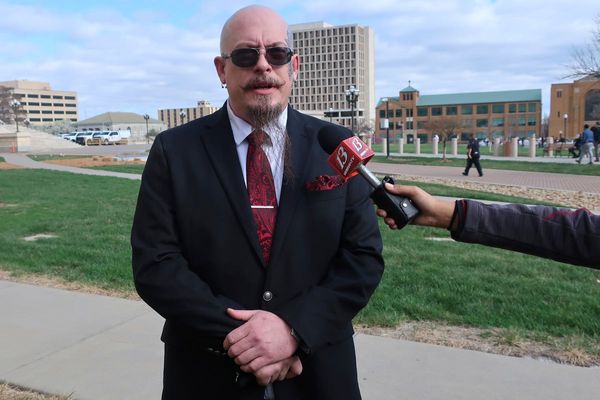
I hear repeatedly that public safety improvements should be priorities in the new Johnson administration, and it is important to bring back the soul of Chicago.
Improving the New Maxwell Street Market and replicating it on the West and South sides would reduce youth violence, by increasing earning opportunities; improving human relations; celebrating local culture; and creating linkages based on legal business profits, not grudges that lead to violence.
There is historical precedence for this strategy. Think about the waves of new immigrants who first came to Maxwell Street from Europe, Mexico and the Deep South. A Maxwell Street strategy now could also help create jobs and businesses for the thousands of migrants sent here from Texas, as well as for our at-risk youth who are already here.
The New Maxwell Street Market is a family-friendly continuation of the original Maxwell Street Market, which is known worldwide — as an entry point during the Great Migration, and as a place known for the blues, the zoot suit, the Maxwell Polish, and as the home of many prominent people.
But rather than respect this great amenity, Chicago has treated it poorly during recent mayoral administrations, with Harold Washington as a notable exception. The original market went from 1,200 vendors in the 1990s to fewer than 30 at the New Maxwell Street Market in 2023.
More vendors, longer hours
The original market should be a model to think about how street markets can be used to create job opportunities, micro-entrepreneurial training, cultural expression, improved human relations and an increase in discount shopping.
An urban outdoor marketplace should be a centerpiece inside a neighborhood, as if the neighborhood were a village. Replications should be tailored to local needs and placed first in neighborhoods with the greatest economic need on the South and West sides.
It seems prudent to start with first improving the New Maxwell Street Market on the Near West Side, to increase its capacity to 200 vendors and operate year-round, every Sunday, using alternative indoor locations on bad weather days. In other communities, the schedules of operation should be determined by a local advisory council of neighborhood vendors and other stakeholders.
The types of goods to be sold should include new, used and homemade goods, produce and prepared foods. Services should be sold as well. The busker policy — that any creative performance can perform without paying a vendor’s fee as long as it doesn’t sell a product — should continue.
I have found that the most effective path to starting a business is having an expansive network of acquaintances across race and class — opportunities to observe others operating a business, including a mentor; being frugal and having a significant someone to help save money for start-up expenses; and having opportunities to operate a business where the cost of failure is low.
This is the business incubation recipe I observed on Maxwell Street.
Businesses in the neighborhood can be encouraged to partner with local youth by granting the businesses lower vendor fees. Businesses can train local youth to be salespeople at the market and handle money and provide the initial inventory to be sold.
No gang identification or hand signals, no physical or verbal violence, and no weapons would be allowed in the market area, and a city-arranged local gang summit may be required to ensure this.
While the market can easily be created, it can also easily be moved if there is not compliance to these rules.
Advertising and promotion should include extensive placement of flyers and posters in stores, restaurants and apartment buildings within a one-mile radius; ads on social media; holding special events and showcasing them on local radio and TV; and creating weekly video podcasts at the markets that are produced by students.
Expanding the New Maxwell Street Market and replicating it elsewhere can be a showcase for Chicago’s micro-enterprise and cultural energy, and also an attraction for attendees of the 2024 Democratic National Convention.
Steve Balkin is professor emeritus in economics, Roosevelt University.
Send letters to letters@suntimes.com
The views and opinions expressed by contributors are their own and do not necessarily reflect those of the Chicago Sun-Times or any of its affiliates.







